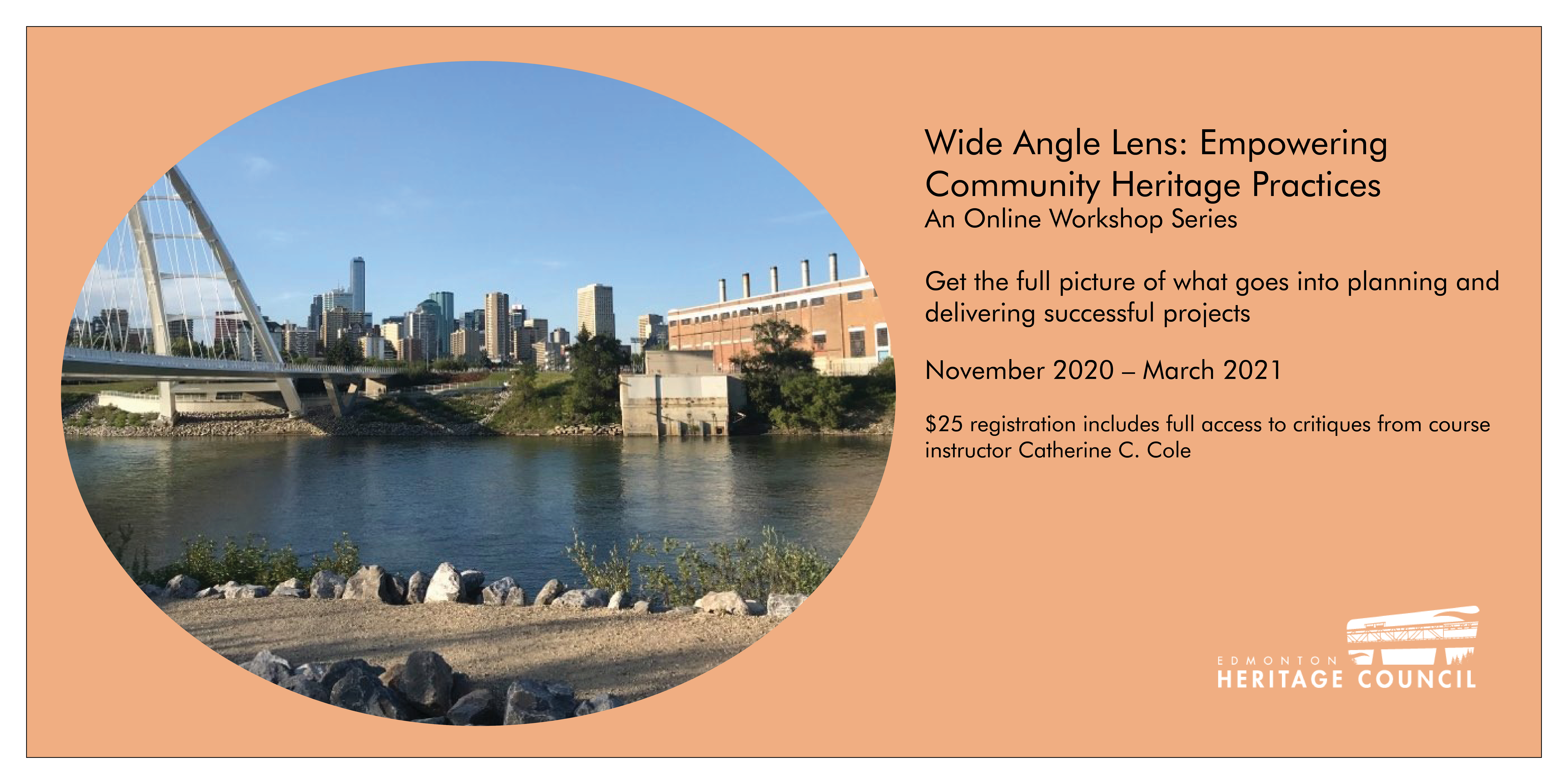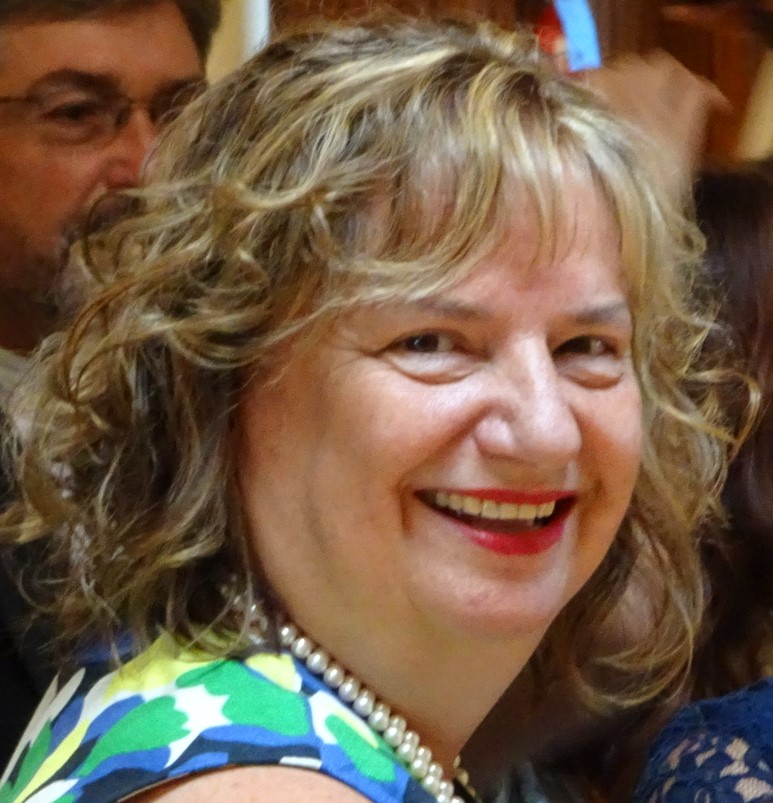On Thursday, January 14, register FREE to audit Working ‘With’ and ‘In’ Communities, the third in a series of five webinars presented by EHC (offered from 2:00 – 3:30 PM or 7:00 – 8:30 PM). The online workshop series Wide Angle Lens: Empowering Community Heritage Practices outlines the process, challenges, and answers some of the FAQs of conducting a community heritage project.

The first two webinars, Edmonton Stories and Steps in Project Planning, dealt primarily with questions of project management, like which topics in Edmonton heritage have or have not been studied or why, and what do heritage researchers need to consider when planning a project?
The upcoming webinar, Working ‘With’ and ‘In’ Communities, covers issues of bias, ethics, and power dynamics. The relationship between researcher and subjects of the research project requires careful consideration to ensure that participants are represented with accuracy and dignity. Whether the researcher is a member of the community (working ‘in’) or an outsider (working ‘with’), there can be advantages and disadvantages within either approach. Developing an awareness of our own inherent bias can help us as researchers to present more holistic narratives. At the conclusion of this webinar, participants will understand the difference between consultation, engagement, collaboration, partnership, community research, representation, inclusion, voice, and shared authority.
Full series registrants have access to additional readings, worksheets, and feedback from the series facilitator, Catherine C. Cole.
At this midway point, we offer a Q&A with the series facilitator, Catherine C. Cole, addressing a few questions about Working ‘With’ and ‘In’ Communities.
What can participants expect to get out of this webinar?
Participants will develop a better understanding of their own identity and how it impacts the way they approach people from other communities, as well as receive clarification about the spectrum of working with communities from consultation to shared authority.
What is one of the most common avoidable mistakes that professional researchers make working ‘In’ communities as an outsider?
It’s important to take the time to build trust within a community, to work with community member as a liaison.
What is one of the most common avoidable mistakes that professional researchers make working ‘In’ communities as an insider?
Sometimes people don’t recognize their own biases as community members, or assume various biases on the part of members of the larger community.
How important is it to observe cultural protocols when working ‘With’ communities as an outsider?
It’s really important to observe cultural protocols when withing with a community of which you are not a part – but also very important to understand that you can’t assume that protocols are shared by everyone in that community – learn as much as you can about the specific people you are working with and ask them what protocols to observe.
What is one example of a method that you have for connecting with research participants in a meaningful way?
I always try to establish a connection with people as humans, sharing food can be effective, demonstrating openness and interest in their lives.
The phrase “nothing about us without us” comes up in this webinar. What does this mean in the context of Edmonton heritage?
While the concept comes from the disability community, it has become particularly important in terms of racialized communities – it means that people who are not a part of a community should always work with those who are and share power and voice.
Is there an important distinction between community-based research and institutional-based research?
Community heritage projects may or may not involve professional historians; they don’t necessarily follow professional practices but can tell stories that professional historians can’t necessarily access (for example, youth interviewing their grandparents, community members bringing in significant family treasures for a collective ‘show and tell’ event).
Which voices do you think are missing from the Edmonton Story?
Marginalized communities: women, Indigenous people (particularly post-fur trade), racialized communities, differently-abled people, working people, LGBTQ!A2S+, homeless…
Has COVID-19 affected your theoretical perspective on heritage?
Covid-19 has underlined some of the issues, questions of privilege and race for example, and demonstrated the need to learn from history, including events like the 1918 Influenza, or earlier outbreaks such as Scarlet Fever, both of which cut off branches on my family tree.
If you have more questions on this topic, you are encouraged to attend the upcoming webinar (afternoon or evening option) and ask them directly. We strongly encourage participants to share questions in the chat or to reach out directly to the facilitator afterwards. Learn more about the series (as well as the guest speakers for the third session) and register for future sessions.
